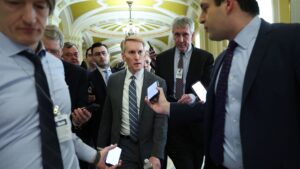Who was Henry Kissinger and What was his legacy?

Henry Kissinger, a controversial U.S. diplomat and former Secretary of State recently died on November 29th at the age of 100.
Kissinger was born in Germany in 1923, fled Nazi persecution with his family and eventually settled in New York City. After serving in the U.S. Army during World War II, he became a U.S. citizen and attended Harvard. Kissinger’s career consisted heavily of government service. He held the role of secretary of state and national security adviser under Presidents Richard Nixon and Gerald Ford. In his position, he majorly influenced the events that occurred during the Cold War.
Even after leaving the government in 1977, he continued to play a role in global affairs. Kissinger was known for his practical approach to foreign relations, focusing on achieving practical goals rather than sticking to moral ideals. He played a crucial part in improving relations between the U.S. and China. He was one of the only American leaders to have met with the sheer amount of Chinese leaders that he had, and in his recent visit to China, he was treated like royalty. He was also awarded the Nobel Peace Prize for ending American involvement in the Vietnam War.
On the other hand, Kissinger has had some very controversial takes and actions. Among these are his bombing of Cambodia during the Vietnam War, his support of Pakistan during the Bengali Massacre and even going as far as to support the undermining of a democracy in Chile and the establishment of a military dictatorship. The horrors of his actions have no extent and unfortunately, some still affect the region of Southeast Asia today.
When asked about Kissinger, President Biden mentioned that he had first met Kissinger when Biden was a senator and that although he and Kissinger disagreed on many topics, Kissinger had a fiery spirit and fought for his opinions. Overall, Kissinger played a key role in shaping post-Cold War America.








